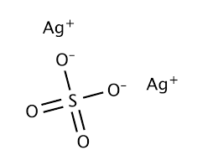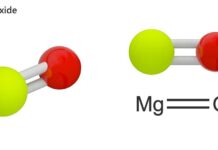What is Inorganic chemistry?
Inorganic chemistry deals with the study of behavior of synthesis of inorganic and organometalic compounds and the study of chemical compounds which does not contain carbon atom. Meanwhile organic chemistry is used to study the compounds containing carbon atoms.
In other words, Inorganic chemistry is the study of behavior of physical and chemical properties of elements in the periodic table.

Application of Inorganic chemistry:
Inorganic compounds are used as
- Catalyst
- Pigments
- Coating
- Surfactant
- Medicines
- Fuels
It is used in many fields. Some of them are given as follows:
Cleansing agent
Many cleansing agent such as soap, detergent and floor cleaner have inorganic compound as solvent, cleanser itself or foam producer.
High concentration of these compounds may cause skin irritation, dry skin and dark patches on skin etc.,

Textile additives
Unlike food additives, some compounds are used as textile additives. They are used to color fibres, printing and many more.
Building foundation
For setting concrete to a hard mass, calcium sulphate with water is used. Furthermore, limestone is used for concrete foundation. Then stone is used for the creation of beautiful pattern on surface.
Home Medicine
We have first aid kit in our home, there it has laxatives and antacids. These are mainly the composition of inorganic compounds.
Electronic devices
Many electronic devices used in home are the composition of inorganic compounds. Alkali as the main component in battery industries.
Jewelry
The pure gold cannot be used as jewelry. When it is mixed with it can be stretchable and can be used in the making of jewelry.
1. Catalyst
Lithium Aluminium Hydride is used as reducing agent. In Haber’s process, organic compound Iron is used as catalyst. Many Organometallic compounds that is nothing but the combination of organic compounds with metals are used as a catalyst is many processes.
Wilkinson’s catalyst is used in the hydrogenation of olefins. The chemical name of Wilkinson’s catalyst is chloridotris(triphenylphosphine)rhodium(I), a coordination complex of rhodium with the formula [RhCl(PPh3)3]

2. Pigments
It consists of dry ground minerals, usually metals and metallic salts.
The most commonly used inorganic pigment is White Titanium Oxide.

3. Fuels
Liquid hydrogen is well known fuel used in rockets. Some nitrogen containing compounds such as hydrazine, hydroxyl amine etc., are some of the components in rocket fuel.
4. Surfactant
Many inorganic salts are used as surfactants in hydrophilic end. The end which is in contact with the water is known as hydrophilic end.





















